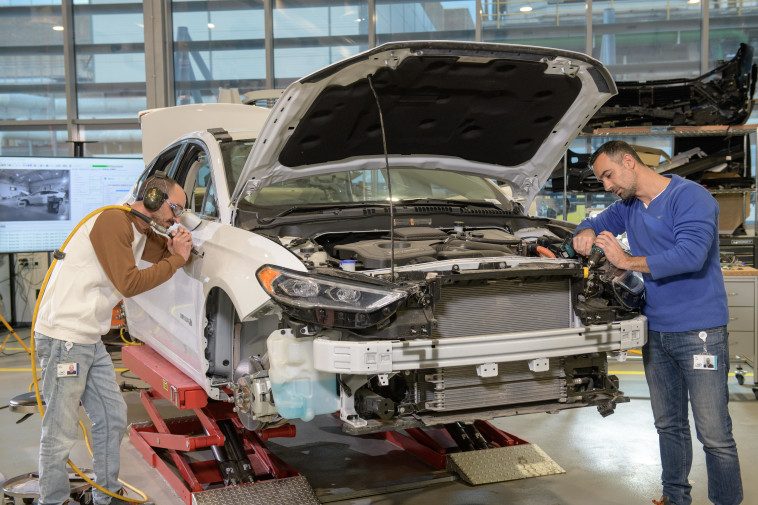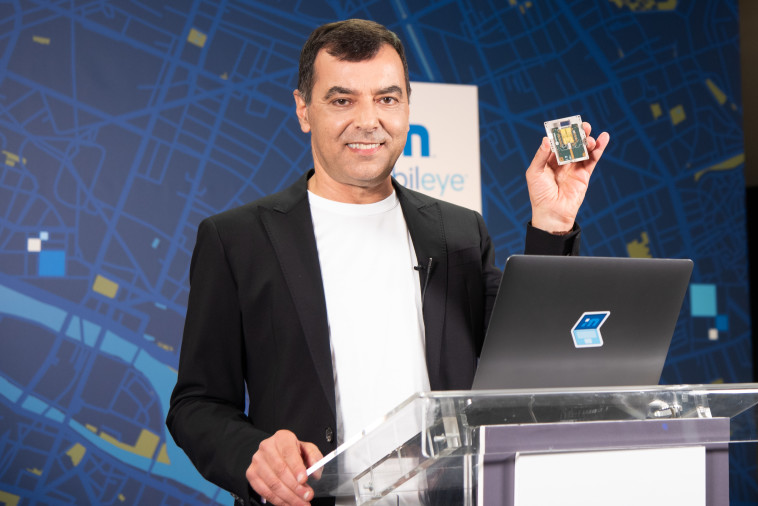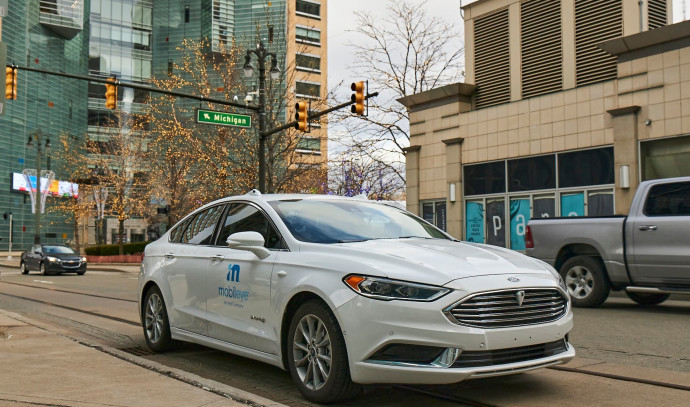Mobilai, a subsidiary of Intel, presented the strategy and technology that will enable autonomous vehicles (AV) to live up to their promise to save lives around the world, including, among other things, mass sourcing based mapping. During two sessions at the CES Consumer Electronics Show this week, Amnon Shashua, President and CEO of Mobilai, and senior vice president at Intel Global, will present the way Mobilai is prepared to deal with the global market in the automotive industry.
“With Intel’s support and based on our ‘holy trinity’ approach, Mobilai may grow to unprecedented proportions,” Amusement said. “From the beginning, every part of our program is geared towards rapid geographical and economic growth – and the news we bring today shows how our innovations enable us to implement this strategy.”
Amusement will explain the importance of providing a sensing solution, which has capabilities that are several times greater than those of human drivers. He will explain how Mobilai’s technology – which includes Road Experience Management (REM) mapping technology, driving policies based on Responsibility-Sensitive Safety (RSS) rules and two separate, fully redundant subsystems, based on world-leading camera, radar and lidar technology – are integrated To provide such a solution.
 Mobilai vehicles in Jerusalem (Photo: PR)
Mobilai vehicles in Jerusalem (Photo: PR)The company further explained that in order to thrive in the global market, it is essential to lower the price of the technology to an affordable price, which will be compatible with the future market prices of autonomous vehicles. Mobilai’s solution starts with an inexpensive camera that serves as a primary sensor, integrated into a parallel sensor system (radar and lidar) that operates independently, and enables essential performance for safety, which exceeds their safety level by at least three times that of human drivers.
In addition, with the help of True Redundancy technology, Mobilai can verify this level of performance faster and cheaper than competing systems that are based on information fusion.
Shashua explained that the company’s vision includes autonomous vehicles with improved detection and measurement capabilities based on light and radio waves, which are the key to further raising the road safety threshold. Mobilai and Intel present innovative solutions that will provide these advanced capabilities using radar and lidar for autonomous vehicles, while optimizing computing power and cost-benefit ratios.
As Amusement at Mobilai’s annual event Under the Hood explains, Mobilai’s software – based imaging radar technology allows radar to build a worldview (using sensing) that is good enough for driving policies that support autonomous driving.
 Amnon Amusement (Photo: PR)
Amnon Amusement (Photo: PR)Amusement will also explain how Intel’s specialization in photon chip factories is capable of combining active and passive laser components on silicon chips. “It will really change the rules of the game,” said Amusement of the chip-based lidar expected to be released in 2025. “We call it a ‘photonic integrated circuit’ (PIC). It has 184 vertical lines, and those lines are transmitted by optical means. Factories that can produce such chips are very rare. It gives Intel a significant advantage in building these lidar systems.”
Amusement will explain at Monday’s event the thought behind the mapping technology based on mass wisdom. The technology is now capable of mapping the world automatically, with a mapping of more than eight million kilometers daily, and with close to a billion kilometers mapped to date. This mapping process differs from the other approaches in that it emphasizes semantic details that are essential to an autonomous vehicle’s ability to understand its environment and contexts.
In order for autonomous vehicles to be able to realize their purpose, save lives, they need to be widely interpreted, and be able to reach almost anywhere. Mobilai’s automated mapping system uses technology applied to nearly a million vehicles equipped with Mobilai’s advanced driver assistance system.
To illustrate the growth capabilities that this automated mapping allows, Mobilai will put autonomous vehicles on the road in four new countries, without sending expert engineers to those countries. The company will send the cars to local teams that provide support to the company’s customers. After proper safety training, these vehicles will be able to start operating. This is the approach used in 2020 to start driving autonomous vehicles in Munich and Detroit, within a few days.
